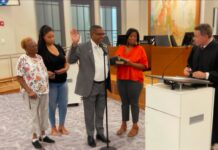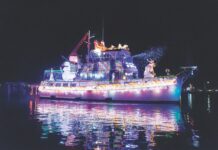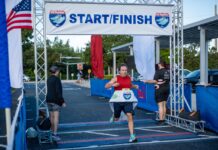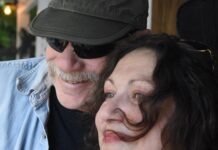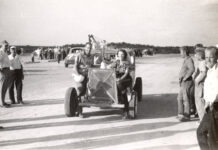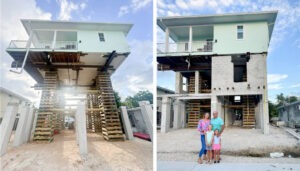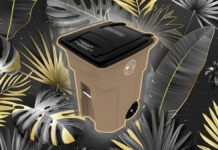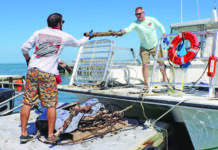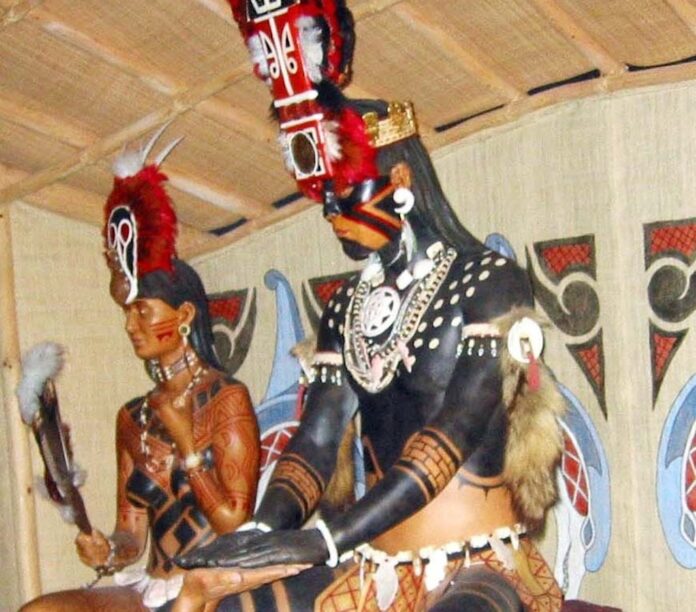
I spend hours and hours researching the local history and then writing about it, and I do my best to share some history, tell a story and maybe connect with an audience that enjoys reading the words I work to string together. While writing can be isolating work, it suits me.
Once in a while, someone sends an email or a text or calls me regarding something I’ve written — for better or worse. The other morning, my phone rang (which it rarely does), and I debated for two rings about whether or not to answer it. It appeared to be a local number, so I answered with a bit of trepidation. “Hello?”
“Is this Brad Bertelli?”
“It is.”
The gentleman on the other end of the line said, “I read your column and wanted to give you a call.”
Historically, this particular phrase has given me pause as it can lead in one of two directions. Sometimes, people reach out to inform me of a mistake, which is fine because everyone makes mistakes. The “you made a mistake” contact itself goes either one of two ways. Some seem to relish pointing out the mistake, and some reach out to share their knowledge or experience.
In every case, when opportunities to learn something new present themselves, I like to take them. This phone call I received the other day was something different, something nicer. The call was from a 92-year-old gentleman from Key West who wanted to tell me that my column and the circa 1940 picture that accompanied it sparked memories of visiting Key Largo as a young boy with his father.
Part of the column talked about a North Key Largo roadside motel called Mabel’s Place.
“I remember Mabel’s Place,” he said. “There was a little room in the back where you could drink liquor.”
In those days, the roadside motel was a place to have a drink, play games of chance or hire the company of a lady. The building is long since gone, but the story remains, and the history associated with Mabel’s Place is one of my favorites.
The stories I tell are nothing new. The only reason I am able to share them is that others recorded the details about them first. In the best light, I am a re-reporter who retells stories that are informative and, hopefully, a little entertaining.
One of the most challenging stories to tell is about the first people who called this island chain home. It is surprisingly complicated, which makes sense because there was no one taking notes about what was going on in the Florida Keys 1,000 or 2,000 years ago. Outsiders recorded the earliest documented observations about the indigenous people who lived here and often incorporated their own cultural biases.
One of the early written accounts of the indigenous people who lived in the Keys and South Florida was written by a Spaniard commonly remembered as Fontaneda. His full name was Hernando D’Escalante Fontaneda. What is remarkable about his 16th-century story is not just that he survived a hurricane, a shipwreck and was captured by the Calusa people, which are all remarkable and noteworthy feats, but that he wrote a memoir that was published in 1575, the year of his death.
Another amazing detail about Fontaneda’s story is that his observations about the land, the people and their lives did not germinate from second-hand sources or someone standing on the outside and looking in. For 17 years, he lived with the Calusa and traveled with them on sojourns through South Florida and the Keys.
One thing learned from his memoir is that he was able to act as a translator between shipwreck survivors and several local cultures. Another thing is that the chieftain or cacique of the Calusa took a shine to him. It might be the only reason he survived 17 years living among them.
One of the stories Fontaneda recorded in his memoir was this exchange with Carlos, the Calusa cacique. For the record, this version of the memoir was translated in 1854 by Buckingham Smith. “Escalante, tell us the truth for you know well that I like you much. When we tell these, your companions, to dance and sing, and do other things, why are they as mean and rebellious that they will not? Or is it they do not fear death, or will not yield to a people unlike them in their religion. Answer me; and if you do not know the reason, ask it of those newly seized, who of their own fault are captives now, a people whom once we held to be gods come down from the sky.”
Fontaneda responded, “My Lord, as I understand it, they are not contrary, nor is it for some evil reason, but it is because they cannot understand you, which they earnestly strive to do.”
I have written and talked about Fontaneda and his fascinating story for years. It is another one of my favorites. What I have always struggled with when talking about this story is how to pronounce the word cacique. Usually, I just spell it out.
And then, an opportunity presented itself. A few Sundays ago, I was working the little beach bar at Robbie’s of Islamorada. It was a rainy day, and a motorcycle club spending their day rolling down the Overseas Highway pulled into Robbie’s to get out of the rain. On the back of their black leather vests was a patch representing the Cacique Riding Club. When one of the members walked by the bar, I said, “Hey, let me ask you something. I write about history and use the name of your club when I’m talking about the indigenous people. I know it means chieftain, but how do you pronounce it?”
He pronounced it “kuh-seek.” Now, the next time I am talking about the indigenous people, I’ll know how to pronounce cacique and I won’t just spell it out like I used to do.
